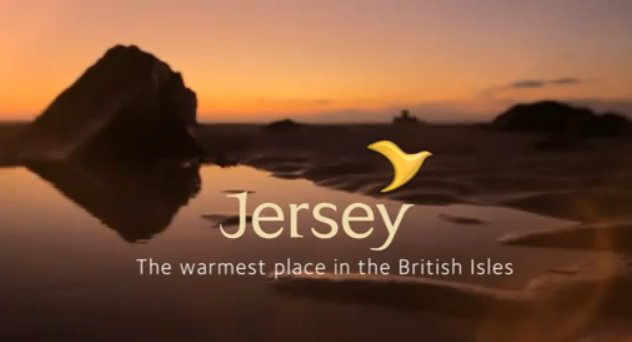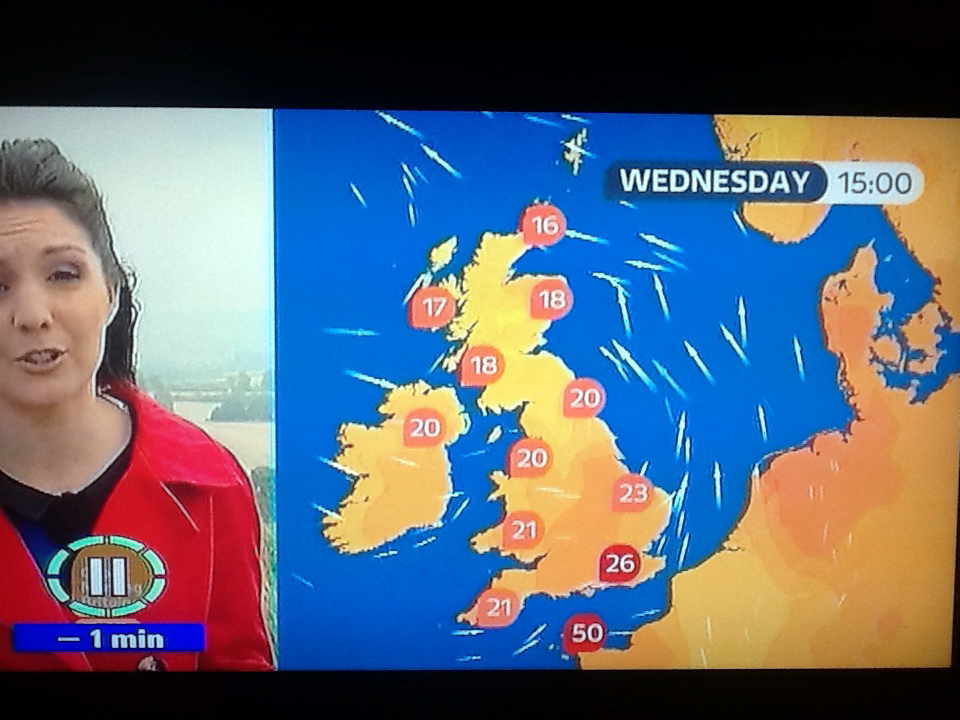A study of temperatures since 1894 shows that the number of record hot days has steadily increased, and the number of cold days has dropped, particularly in the last ten years.
- Nearly one-third of Jerseys highest night-time temperature recordings have occurred in the last 11 years.
- The number of cold nights has decreased steadily over the years.
- Figures measured at Maison St Louis show a steady decline in the number of low maximum daytime temperatures.
- Nearly 100 weather records in Jersey were broken in the decade between 2004 and 2014.
Night-time temperatures are also getting warmer. In 2014 alone, the record highest night-time temperature for a particular night occurred 12 times.
Forecasters at Jersey Met Office keep a list of the highest and lowest maximum and minimum temperatures that have been recorded on each day of the year at the Maison St Louis weather centre.
The details are entered into a ‘blue book’ of extreme temperatures, pressure and rainfall.
Forecaster Mark Le Cornu has recently updated the records, and figures from the last decade confirm a trend towards warmer temperatures.

‘It is consistent with what we would expect to see as a result of global warming, caused by an increase in greenhouse gases. ‘The greenhouse gas carbon dioxide has been increasing due to the burning of fossil fuels.
‘An increase in water vapour in the atmosphere is another likely contributor. This is a positive feedback from climate change. If the temperature of the atmosphere rises it can hold more moisture and as a consequence it is more humid. This is what holds the temperature up at night.’
He added that 2014 was confirmed by meteorological agencies across the world as the warmest year in modern history.
The average temperature for the year was 13.3°C – more than one degree higher than the Island’s 30-year average based on the years 1981 to 2010.
Mr Searson said the so far this year there was no indication of any specific weather trends and added: ‘The year started off cold but not far off the average. We have had storms this year, like last year, but they are different types of storms including hailstones.’
The weather is expected to remain changeable for at least the next five-days.
For the latest weather forecast and tide tables, click here.
JERSEY’S claim to be the ‘warmest place in the British Isles’, part of an advertising campaign from 2011, was quickly being challenged by the Isles of Scilly.
The islands – which lie 28 miles west of Cornwall – threatened to complain to the Advertising Standards Authority over Jersey Tourism’s TV ad campaign.
But Jersey’s minister in charge of tourism at the time laughed off the threat and welcomed the added publicity for the Island.
The Scilly Isles said that their mean minimum temperature over the last 30 years was 9.4°C, compared to 8.9°C in Jersey.
According to figures from the Jersey Met Office, Jersey was ahead of UK and Isles of Scilly figures for average temperatures combining highs and lows, and also in annual hours of sunshine.
But the Isles of Scilly may be ahead in one measurement – mean minimum temperatures – which is the one quoted in the TV ad.

The Council of the Isles of Scilly’s economic development officer, Julian Pearce, said that they would be writing to Jersey Tourism to ‘remind them of both our geographical position and our ranking as the warmest place in the UK’ and would consider making a formal complaint to the ASA.
Economic Development Minister at the time, Senator Alan Maclean – who had political responsibility for tourism – said that the claims in the advert had already been backed by Clearcast, an organisation which checks factual claims in broadcast adverts.
‘We had to go through that process and prove our claim before we broadcast it,’ he said. ‘We went through that and satisfied them, so clearly we stand by the claim that we made,’ he said.
‘It is factually correct and the campaign has been highly successful in attracting visitors.
However, Principal Met Officer Tony Pallot said that the Tourism campaign had cited the one measurement where Jersey was not clearly ahead. He said: ‘I am still confident that we are the warmest place in the British Isles.
Unfortunately, the people putting together the advertising campaign – and they had all of the figures – went for the mean minimum temperature.’
In the national media Malcolm Bell, the head of tourism at Visit Cornwall, claimed that while technically correct, Jersey’s TV ad campaign was ‘stretching the truth’.
He said: ‘When I first saw the advert I just laughed. It seems a bit desperate to base an advert on warmth alone when people who are only interested in that would just go to somewhere such as Dubai instead.
‘But the advert’s claim is also a bit cheeky. People want honesty in advertising. ‘Jersey might just about be technically correct in what they say, but it is bordering on unethical to stretch the truth like this when promoting your destination.’

WE all know that Jersey is the warmest place in the British Isles– but according to ITV’s Good Morning Britain last August, it can get just a little too hot for some.
In the middle of a glorious summer, the breakfast TV show forecast that the Island would see temperatures of 50°C.
The mistake was quickly spotted and we were downgraded to a more comfortable 22°C.






